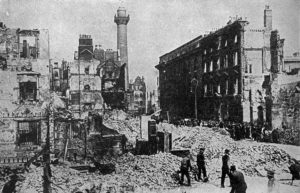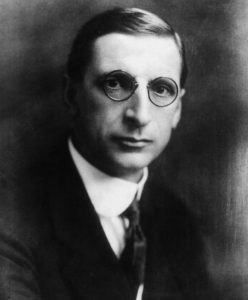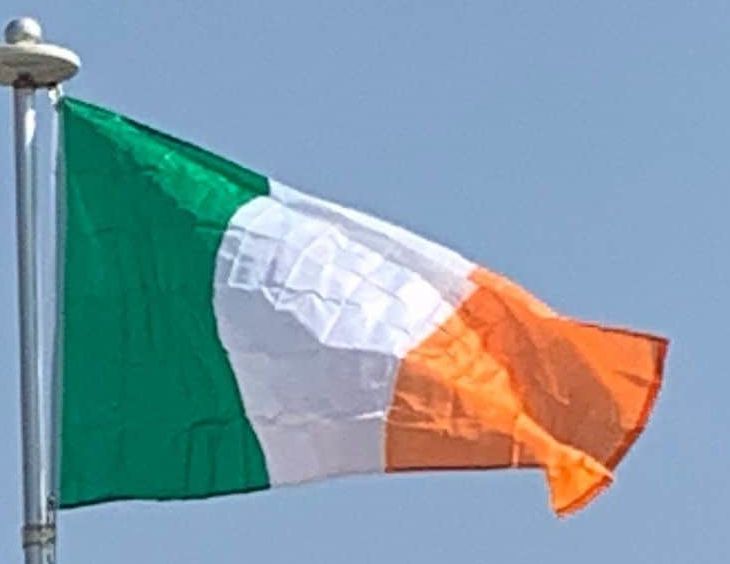The Easter Rising of 1916 was carried out by the latter group together with a smaller socialist militia, the Irish Citizen Army. The British response, executing fifteen leaders of the Rising over a period of ten days and imprisoning or interning more than a thousand people, turned the mood of the country in favor of the rebels. Support for Irish republicanism increased further due to the ongoing war in Europe, as well as the Conscription Crisis of 1918.

The pro-independence republican party, Sinn Féin, received overwhelming endorsement in the general election of 1918, and in 1919 proclaimed an Irish Republic, setting up its own parliament (Dáil Éireann) and government. Simultaneously the Volunteers, which became known as the Irish Republican Army (IRA), launched a three-year guerrilla war, which ended in a truce in July 1921 (although violence continued until June 1922, mostly in Northern Ireland).
Partition:
In December 1921, the Anglo-Irish Treaty was concluded between the British government and representatives of the Second Dáil. It gave Ireland complete independence in its home affairs and practical independence for foreign policy, but an opt-out clause allowed Northern Ireland to remain within the United Kingdom, which (as expected) it immediately exercised. Additionally, Members of the Free State Parliament were required to swear an oath of allegiance to the Constitution of the Irish Free State and make a statement of faithfulness to the King. Disagreements over these provisions led to a split in the nationalist movement and a subsequent Irish Civil War between the new government of the Irish Free State and those opposed to the treaty, led by Éamon de Valera.

The civil war officially ended in May 1923 when de Valera issued a cease-fire order.
Independence:
During its first decade, the newly formed Irish Free State was governed by the victors of the civil war. When de Valera achieved power, he took advantage of the Statute of Westminster and political circumstances to build upon inroads to greater sovereignty made by the previous government. The oath was abolished and in 1937 a new constitution was adopted. This completed a process of gradual separation from the British Empire that governments had pursued since independence. However, it was not until 1949 that the state was declared, officially, to be the Republic of Ireland.
The state was neutral during World War II, but offered clandestine assistance to the Allies, particularly in the potential defense of Northern Ireland. Despite their country’s neutrality, approximately 50,000 volunteers from independent Ireland joined the British forces during the war, four being awarded Victoria Crosses.
The German intelligence was also active in Ireland. Its operations ended in September 1941 when police made arrests on the basis of surveillance carried out on the key diplomatic legations in Dublin. To the authorities, counterintelligence was a fundamental line of defense. With a regular army of only slightly over seven thousand men at the start of the war, and with limited supplies of modern weapons, the state would have had great difficulty in defending itself from invasion from either side in the conflict.
